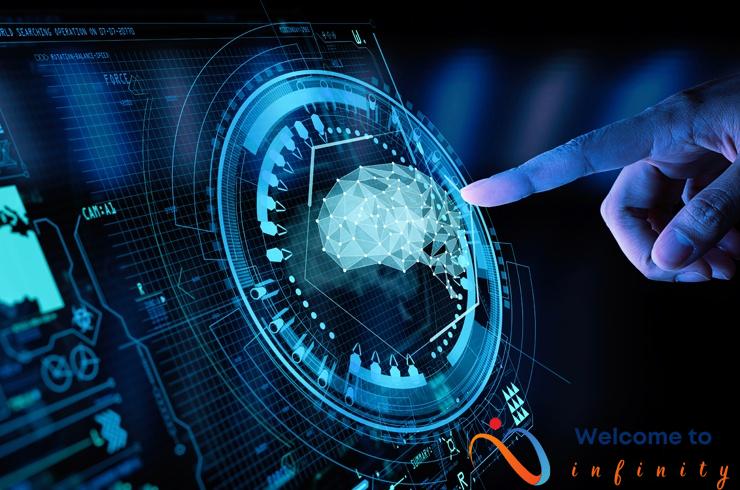Social media has become an integral part of modern life, with billions of people using it to connect and share information. With such a vast amount of content being uploaded every day, content moderation has become a critical issue in social media. AI-powered content moderation is being used to help identify and remove harmful or inappropriate content from social media platforms.
At the same time, AI-powered recommendation systems are being used to personalize social media feeds for users by suggesting content based on their interests and behavior. These systems help increase engagement, keep users on the platform longer, and improve overall user experience.
However, the challenges for AI in content moderation include keeping up with new forms of harmful content and avoiding biased decisions. To overcome these challenges, solutions include combining AI with human moderators, using machine learning to identify patterns, and implementing strict guidelines for content creation.
Despite the benefits of AI-powered recommendation systems, there are also concerns about echo chambers, where these systems only show users content similar to what they already believe, which can reinforce biases and divide society. The future of AI in social media likely includes continued development and improvement of content moderation and recommendation systems, as well as exploring new ways to use AI for social good.
Content Moderation
Content moderation is an important aspect of social media platforms, as it helps to ensure that harmful or inappropriate content is not distributed and viewed. With the increased use of AI in social media, content moderation has become more efficient and effective. AI-powered content moderation uses algorithms and filters to identify potentially problematic content, which can then be reviewed by human moderators or taken down automatically.
One of the major benefits of AI-powered content moderation is its ability to quickly analyze large amounts of content. This allows social media platforms to respond to harmful content more quickly and efficiently, reducing the amount of time that inappropriate content is visible to users. Additionally, AI can assist in identifying previously unknown harmful content, which can help in identifying and preventing new forms of harmful behavior on social media platforms.
However, the use of AI in content moderation is not without its challenges. One of the challenges is keeping up with ever-evolving forms of harmful content, such as hate speech or misinformation. Additionally, AI can sometimes make biased decisions or fail to recognize the nuances of certain types of content.
To overcome these challenges, social media platforms can combine the use of AI with human moderators. This allows for more nuanced and comprehensive decision-making, as human moderators can review content that AI algorithms may struggle with. Additionally, machine learning can be used to identify patterns in potentially harmful content, which can help improve the accuracy of content moderation algorithms. Finally, social media platforms can implement strict guidelines for content creation, which can help reduce the amount of harmful content that is posted in the first place.
Challenges
As AI becomes increasingly important in content moderation on social media platforms, there are several challenges that need to be addressed. One of the biggest challenges is keeping up with new forms of harmful content. With the constantly evolving online landscape, new types of harmful content are emerging every day, making it difficult for AI algorithms to detect and remove them.
Another major challenge is avoiding biased decisions. AI systems can sometimes make decisions that reinforce existing biases, which can result in the unfair treatment of certain groups or individuals. To combat this, it is important to ensure that the AI algorithms are trained on diverse datasets and monitored regularly to detect and correct any biased decision-making.
To overcome these challenges, a combination of AI and human moderation is often used. This approach allows AI to flag potentially harmful content for human moderators to review and make final decisions on. Additionally, machine learning algorithms can be used to identify patterns in the data that may indicate harmful content and allow for early detection and intervention.
Strict guidelines for content creation can also help address these challenges. Platforms can develop clear policies and guidelines for what constitutes acceptable content, making it easier for AI to flag and remove harmful or inappropriate posts. By continuously refining and improving these guidelines, social media platforms can help ensure that AI is making fair and unbiased decisions when it comes to content moderation.
Solutions
Combining AI with human moderators is an effective solution for content moderation on social media platforms. Since AI algorithms can make mistakes or show bias, human moderators can intervene and ensure that the content removed is truly harmful or inappropriate. This combination is also helpful in dealing with new forms of harmful content because algorithms may not be able to detect them, but humans can quickly recognize them.
Machine learning is another solution used to identify patterns of harmful or inappropriate content. AI algorithms can quickly detect and remove content that does not adhere to strict guidelines. Furthermore, machine learning can be used to identify users who consistently post harmful content, ensuring that they are dealt with more efficiently. Social media platforms can then take measures to prevent these users from posting again.
Strict guidelines for content creation are vital in making sure that harmful or inappropriate content does not slip through the algorithmic cracks. These guidelines ensure that users are aware of what they can and cannot post, making it less likely that harmful or inappropriate content will be posted on the platform. Implementing strict guidelines along with AI-powered content moderation can significantly reduce the amount of harmful or inappropriate content posted on social media platforms.
Overall, combining human moderators with AI algorithms, using machine learning, and implementing strict guidelines for content creation is an effective solution for content moderation on social media platforms.
Recommendation Systems
The use of AI in social media has revolutionized the way users consume content. AI-powered recommendation systems are one such example that helps personalize social media feeds for users. These systems suggest content based on the user's interests, behavior patterns, and interactions.
AI recommendation systems use complex algorithms that identify the user's preferences and display relevant content. For instance, if a user interacts often with cat videos, the system will suggest more cat videos. Similarly, if a user has liked and commented on posts about baking, the system will suggest more content related to baking.
The benefits of these systems are numerous. They help increase engagement and keep users on the platform longer. They also improve the overall user experience by tailoring content according to individual preferences. As a result, users feel more connected to the platform and are more likely to spend more time browsing.
However, there are concerns about echo chambers, where recommendation systems only show users content similar to what they already believe. This can reinforce biases and divide society, leading to the spread of fake news and misinformation. To tackle this problem, social media platforms need to develop more responsible algorithms that ensure a diverse range of content is displayed to users.
In conclusion, AI-powered recommendation systems have transformed the way users consume content on social media. They have immense potential to improve user experience and increase engagement. However, it is crucial to ensure that these systems do not reinforce biases and create echo chambers, which can harm society as a whole.
Benefits
AI-powered recommendation systems have many benefits for social media platforms and their users. By suggesting content based on a user's interests and behavior, these systems help increase engagement and keep users on the platform longer. When users are shown content that's relevant and interesting to them, they're more likely to engage with it and spend more time on the platform.
Another benefit of AI-powered recommendation systems is that they improve the overall user experience. Instead of manually searching for content to view, users can sit back and let the recommendation system do the work for them. This means less effort and more enjoyment for users.
Furthermore, by learning from a user's behavior, AI-powered recommendation systems can provide a personalized experience for each user. This means users are more likely to find content they enjoy and less likely to see content they don't, making the platform more enjoyable for them overall.
Overall, the benefits of AI-powered recommendation systems include increased engagement, longer user retention, and an improved user experience. As social media continues to grow, these systems are likely to become even more important for keeping users engaged and satisfied with the platform.
Concerns
One of the biggest concerns regarding AI-powered recommendation systems is the possibility of creating echo chambers. These chambers are created when the system only suggests content similar to what the user already believes or prefers. As a result, the user is exposed only to a limited perspective, which can reinforce biases and create polarized communities or societies.
These concerns have been particularly highlighted in the context of political polarization and the spread of fake news. If a user is only exposed to content that aligns with their existing beliefs, they may be less likely to consider alternative perspectives or critically evaluate the information they are consuming. This can ultimately lead to mistrust and misunderstanding across different groups of people.
To combat these concerns, some social media platforms have implemented measures to widen the range of content suggested to users. This can be done by providing users with content outside of their usual preferences or showing multiple perspectives on the same issue. Additionally, users can take responsibility for their own media consumption by actively seeking out content that challenges their existing beliefs.
As AI continues to advance, it will be important to ensure that recommendation systems and content moderation are implemented in a way that promotes diversity and prevents the creation of echo chambers. By doing so, social media can continue to be a platform that fosters open communication and understanding among people from different backgrounds and perspectives.
The Future
The future of AI in social media is very promising. Although it has already made significant advances, there is still much room for growth. One area that needs improvement is content moderation. As social media platforms continue to evolve, so do the different types of harmful content and methods of spreading it. Therefore, AI algorithms must keep pace with these changes, and developers must continue to improve their efficiency.
Another area of development that we can expect in the future is the personalization of recommendation systems. Social media platforms use AI to analyze user data and recommend content based on their past behavior. However, this can result in echo chambers where users only see content that reinforces their beliefs and biases. Therefore, AI models need to take into account a broader range of user behavior to provide personalized content recommendations without reinforcing existing biases.
Furthermore, AI can be used for social good. For example, it can be used to detect and prevent cyber-bullying, online harassment, and other harmful content. In addition, AI can help identify and support individuals who may be at risk of self-harm or suicide.
Finally, AI can also be used to analyze user data to determine how social media is affecting mental health and wellbeing. This information can then be used to develop better features in social media platforms or to provide support services to those in need.
Overall, the future of AI in social media is very promising, and we can expect continued development and improvement of content moderation and recommendation systems, as well as exploring new ways to use AI for social good.












